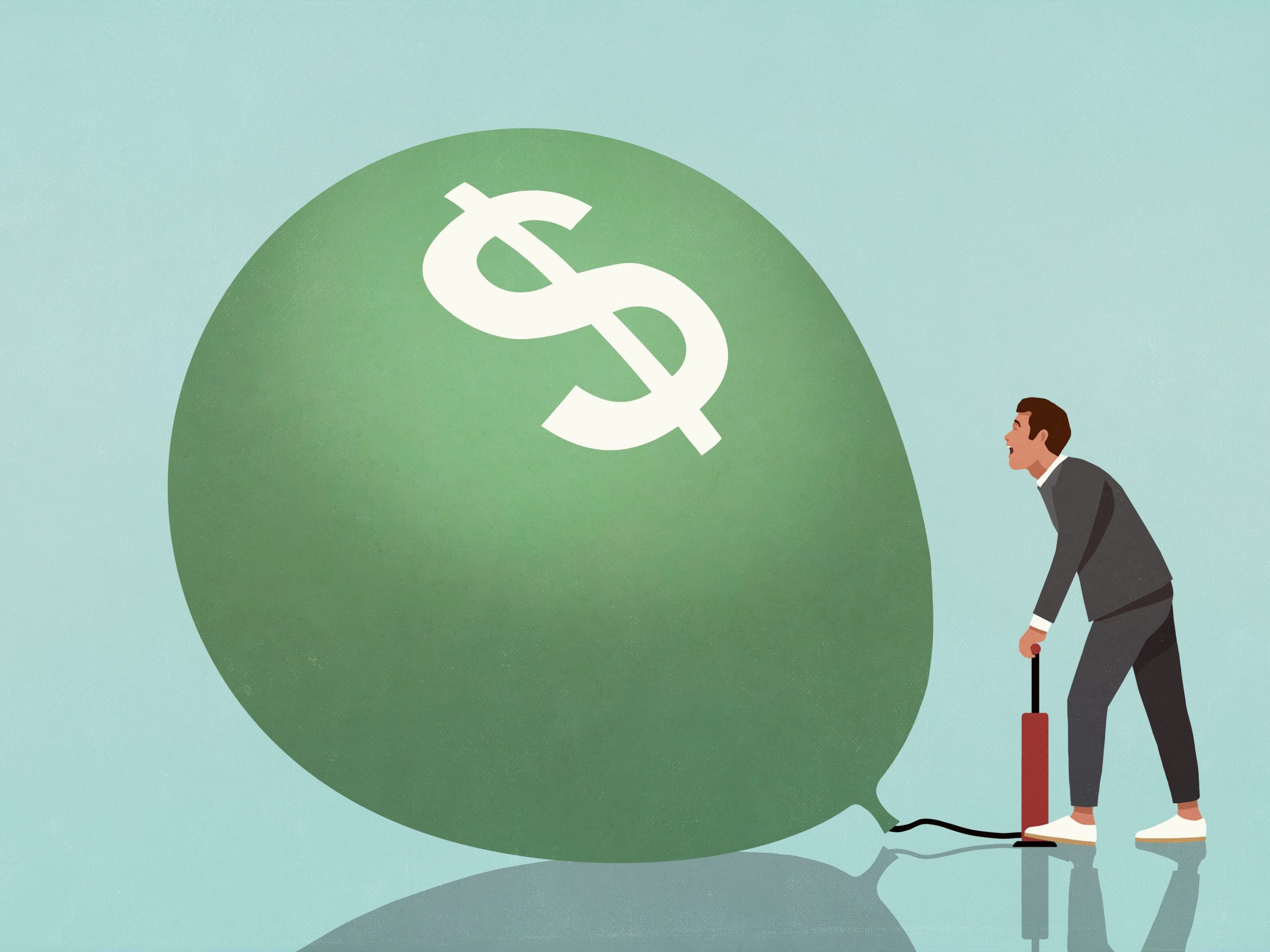
- Data on Thursday showed US inflation had risen 7.5% year-on-year, sending US stocks into the red.
- Equities tumbled across Asian and European markets on Friday, as investor risk appetite fell.
- The cryptocurrency market remained relatively stable on Friday, down slightly.
Global shares slid on Friday, after data showed US consumer inflation ran at a new 40-year high in January, fueling fears that the Federal Reserve may be behind the curve in tackling rising price pressures and prompting investors to ditch riskier assets.
The consumer price index, used to measure a basket of common goods and services, rose 7.5% in the year through January, according to data released on Thursday. This was above the 7.3% economists had expected and the highest since 1982, which battered the major indices on Thursday.
Global shares dropped broadly on Friday, with the MSCI global index down 0.39%. US stock futures slipped, with the S&P 500 futures falling 0.47% while NASDAQ 100 futures were down 0.52% at the time of writing, suggesting a weak start to trade later on.
The Fed maintains a target of 2% for core consumer inflation, which excludes food and energy prices. Any reading higher than that might prompt the central bank to raise interest rates in order to protect the economy from spiraling price pressures. Markets show investors now expect the Fed to raise rates at every policy meeting this year and possibly beyond.
"The data did not disappoint the inflation hawks, showing prices rose by a new 4-decade high 7.5% year on year in January; excluding volatile food and energy components, prices rose by 6% year on year. Clearly, both rates are well above, over triple in fact, the Fed's price target." Michael Brown, head of market intelligence Caxton, said.
One of the Fed's more hawkish policy makers, St. Louis Federal Reserve Bank President James Bullard added that he wants to see an exponential increase in rate hikes.
"I'd like to see 100 basis points in the bag by July 1. I was already more hawkish but I have pulled up dramatically what I think the committee should do," he told Bloomberg in an interview on Thursday.
The yield on the 10-year Treasury note was down 3 basis points on the day at 1.998%, having hit a high of 2.056% the day before. This was the first time the benchmark rate had topped 2% since August 2019.
European markets were in line with Asia, where the MSCI index of Asia-Pacific shares outside Japan dropped 1.1%, while the Stoxx 600 in Europe fell 1.04%.
Data on Friday showed the UK economy expanded by 7.5% in 2021, the fastest rate of growth since 1941. In December, GDP fell by 0.2% compared with the previous month, compared with expectations for a drop of 0.6%.
"The Omicron variant impacted output in December, as was to be expected, with consumers reigning in activity and this will no doubt effect January's numbers too. As the cost of living crisis builds, it hardly heralds as rosy an outlook– this year the UK economy's growth will inevitably slow to its post Brexit sub-optimal level," Charles Hepworth, who is investment director at GAM Investments, said.
In the cryptocurrency market, bitcoin and ethereum were both down on Friday, by 1.74% and 3.10% respectively. Over the last week, bitcoin is still almost 15%, while ethereum's ether has gained nearly 10% in that time, according to CoinMarketCap. The more volatile altcoins suffered heavier losses, like solana, which dropped 6.25%, while polkadot's dot fell 7.5%.
